Picture this: you walk into your teenager’s room and find an empty liquor bottle. This scenario is not unrealistic, considering in 2019, nearly a quarter of 14 and 15-year-olds reported having at least one alcoholic drink.
Peer pressure, or social pressure, is a topic parents/caregivers can’t afford to ignore. We often have no control over the dangers our teens and young adults will encounter as they navigate the world, but by having an open dialogue, we can ensure they have the knowledge to make informed decisions and understand they have someone to talk to in any situation. Here are some tips for having tough conversations with your teen.
Three tips for navigating difficult conversations
- Make a commitment. Parents/caregivers must commit to having a conversation. Once they begin the dialogue, it is important to follow through and create a safe space that can be revisited. This is a commitment to being non-judgmental and really hearing your teen and trying to understand what they’ve been seeing and experiencing. You want to have an open conversation and offer support in navigating these complex topics.
- No distractions. Find a quiet space and time to have a conversation. Make sure it’s not just a good time for you; ask your teen or young adult if they are prepared to have an open and honest conversation with you.
- Make it relevant. It might be helpful to use something that’s been on social media or current events to open the discussion. If you have time to dig in, look at what is trending on social media and maybe listen in on what TikTok sounds are trending. Connecting the conversation to a current event or subject is a helpful way to find out what your teenager knows, where their thinking is and what they see amongst their friends.
Do’s and don’ts of a productive conversation
Do’s
- Do make the time and the space for the conversation.
- Do let the conversation be open-ended based on questions that let your young adult tell you what they think or what they know or what they’ve seen, rather than asking questions that are just going to lead to yes or no answers.
- Do communicate your values and expectations, especially around important issues like substance abuse and sexual activity.
Don’ts
- Don’t skip the conversation. Scenarios like finding alcohol in your teen’s room are opportunities for them to ask for help, rather than stay quiet in fear of punishment. Give them an outlet to talk to you and be heard and understood. It’s essential that your young adult sees and learns how to navigate social pressures from their parents/caregivers rather than the media, so take the time and don’t skip the conversation.
- Don’t get emotional. You need to be prepared to hear things that are hard to hear, but you really want to create that open atmosphere for your teenager, so hold the judgment.
- Don’t wait until you see red flags that your teen or young adult might be in trouble, such as a sudden withdrawal from activities, sports, organizations or things they used to enjoy. Other warning signs include a decline in grades or mood changes such as seeming angry, hostile, depressed or anxious.
- Don’t be selfish. This is going to hurt, but don’t take it personally if you’re not the right person for this conversation. Maybe your child is worried about opening up, or you don’t think you can check your emotions (which is fair); you have the option of offering them another outlet. If they don’t feel comfortable or ready to talk to you, there are other family members or adults at their school they may feel comfortable talking to at this point. Make those options available to them.
Parents and caregivers are not alone, and there are resources out there to guide difficult conversations. These aren’t just one-and-done conversations. You will hopefully revisit this over time and across topics, so it is essential you have that first conversation to set the stage to be the first of many. Make sure your teen or young adult knows they have a safe space to speak about anything.
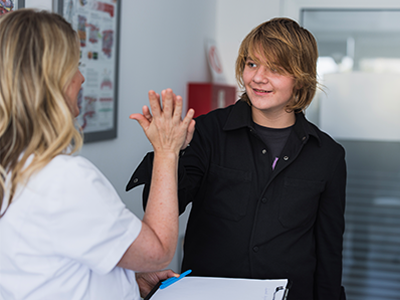 https://riseandshine.childrensnational.org/wp-content/uploads/2025/05/Teen-Advocate-featured.png
300
400
Danielle Robbins
https://riseandshine.childrensnational.org/wp-content/uploads/2017/11/childrens_riseandshine_logo.jpg
Danielle Robbins2025-05-02 10:21:232025-05-23 16:31:43Empowering your teenager: Advocating for themselves at the doctor’s office
https://riseandshine.childrensnational.org/wp-content/uploads/2025/05/Teen-Advocate-featured.png
300
400
Danielle Robbins
https://riseandshine.childrensnational.org/wp-content/uploads/2017/11/childrens_riseandshine_logo.jpg
Danielle Robbins2025-05-02 10:21:232025-05-23 16:31:43Empowering your teenager: Advocating for themselves at the doctor’s office











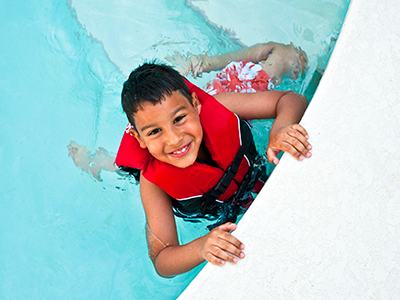
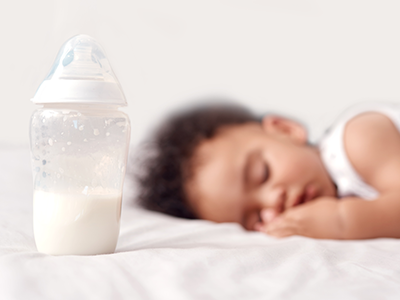
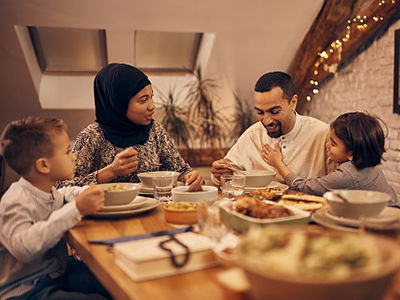





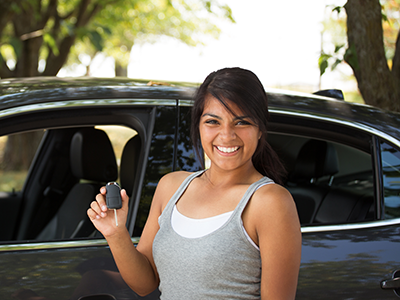

Leave a Comment
Want to join the discussion?Feel free to contribute!